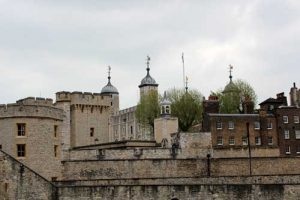 On 2nd May 1536, the day that hs sister, Queen Anne Boleyn, was arrested at Greenwich Palace, George Boleyn, Lord Rochford, was also arrested and taken to the Tower of London. Charles Wriothesley records that he was taken to the Tower “three or four” hours before his sister so must have arrived there around one or two o’clock in the afternoon.
On 2nd May 1536, the day that hs sister, Queen Anne Boleyn, was arrested at Greenwich Palace, George Boleyn, Lord Rochford, was also arrested and taken to the Tower of London. Charles Wriothesley records that he was taken to the Tower “three or four” hours before his sister so must have arrived there around one or two o’clock in the afternoon.
The queen had been arrested at Greenwich Palace, where the court was residing at the time, but George Boleyn was arrested at Whitehall. Why was he at Whitehall when he’d certainly been at Greenwich Palace the previous day, leading the challengers at the May Day joust?
Well, we know from primary sources that the king had left the May Day joust abruptly, riding to Westminster with Sir Henry Norris, who he interrogated on the way, so the king wasn’t at Greenwich. Had George got wind of Smeaton and Norris’s interrogations? Did he realise that his sister was in danger? Had he ridden to Whitehall to try to see the king? That would explain his whereabouts and makes sense.
Or perhaps George had been summoned to Whitehall on the king’s business and had walked straight into a trap?
It’s impossible to say.
You can find out more about the arrests of 2nd May in the audio I shared in my previous article 2 May 1536 – Queen Anne Boleyn is arrested at Greenwich